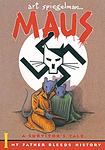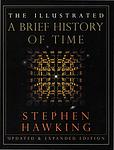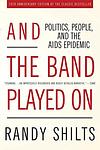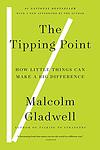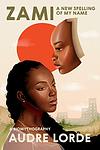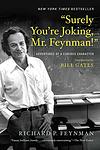The Greatest "Nonfiction" Books Since 1980
Click to learn how this list is calculated.
This list represents a comprehensive and trusted collection of the greatest books. Developed through a specialized algorithm, it brings together 268 'best of' book lists to form a definitive guide to the world's most acclaimed books. For those interested in how these books are chosen, additional details can be found on the rankings page.
Genres
Countries
Date Range
Reading Statistics
Click the button below to see how many of these books you've read!
Download
If you're interested in downloading this list as a CSV file for use in a spreadsheet application, you can easily do so by clicking the button below. Please note that to ensure a manageable file size and faster download, the CSV will include details for only the first 500 books.
Download-
1. Maus by Art Spiegelman
This graphic novel tells the story of a Holocaust survivor, as narrated by his son. The unique use of animals to represent different nationalities and ethnic groups adds a distinctive layer to the narrative. The protagonist's father recounts his experiences as a Polish Jew during World War II, offering a poignant depiction of the horrors of the Holocaust. The narrative also explores the complex father-son relationship, revealing the impact of such traumatic historical events on subsequent generations.
-
2. A Brief History of Time by Stephen Hawking
A Brief History of Time is a popular science book that explores a broad range of topics in cosmology, including the Big Bang, black holes, light cones and superstring theory. The author does not shy away from complex theories and concepts, but explains them in a way that is accessible to non-scientific readers. The book also discusses the possibility of time travel and the boundaries of scientific knowledge. Throughout, the author emphasizes the ongoing quest for a unifying theory that can combine quantum mechanics and general relativity into one all-encompassing, coherent theoretical framework.
-
3. Schindler's List by Thomas Keneally
The book tells the true story of a German businessman who saves more than a thousand Polish Jews during the Holocaust by employing them in his factories. The protagonist's transformation from a greedy high living war profiteer to a savior of lives forms the crux of the narrative. It offers a chilling yet inspiring account of the horrors of the Holocaust, human resilience, and the power of one individual to make a significant difference.
-
4. The Year of Magical Thinking by Joan Didion
This book is a raw and honest exploration of grief and mourning, written by a woman who lost her husband of 40 years to a heart attack while their only child lay comatose in the hospital. The narrative delves into the year following her husband's death, a year marked by grief, confusion, and a desperate hope for things to return to normal. The author's poignant reflections on death, love, and loss serve as a powerful testament to the resilience of the human spirit.
-
5. Persepolis by Marjane Satrapi
This graphic novel is a memoir that provides a personal account of the author's childhood and young adult years in Iran during and after the Islamic revolution. The story portrays the impact of war, political upheaval, and religious extremism on ordinary people, while also exploring themes of identity, resilience, and the power of storytelling. Despite the harsh realities the protagonist faces, the narrative also includes moments of humor and warmth, providing a nuanced view of life in Iran during this tumultuous period.
-
6. Angela's Ashes: A Memoir by Frank McCourt
This memoir is a profound and heart-wrenching account of the author's impoverished childhood in Limerick, Ireland, during the 1930s and 1940s. The story is filled with tales of survival in the face of extreme poverty, an alcoholic father, a struggling mother, and the deaths of three siblings. Despite the harsh circumstances, the narrative is infused with a sense of humor and hope, demonstrating the resilience of the human spirit.
-
7. A Heartbreaking Work of Staggering Genius by Dave Eggers
A Heartbreaking Work of Staggering Genius is a memoir that follows the life of a young man who, after the cancer-related deaths of his parents, is tasked with raising his 8-year-old brother. The book explores themes of death, family, and the responsibilities that come with sudden adulthood. It is a testament to the strength of the human spirit, showcasing the protagonist's journey through grief, financial struggles, and the challenge of raising a child, all while trying to navigate his own young adulthood.
-
8. The Making of the Atomic Bomb by Richard Rhodes
This comprehensive book provides an in-depth account of the development of the atomic bomb during World War II. It explores the scientific advancements that made the bomb possible, the political decisions that led to its creation, and the moral dilemmas faced by the scientists involved. The book also details the personalities of key figures in the Manhattan Project, the effects of the bomb on Hiroshima and Nagasaki, and the impact of nuclear weapons on the world.
-
9. Wild Swans: Three Daughters of China by Jung Chang
This book is a biographical account of three generations of women in China, spanning the years 1909 to 1991. The narrative follows the lives of the author's grandmother, a warlord's concubine; her mother, a high-ranking official in the Communist Party; and the author herself, who grew up during the Cultural Revolution before moving to the West. The book presents a vivid portrayal of the political and social changes in China during the 20th century, as seen through the eyes of these three women.
-
10. The Man Who Mistook His Wife for a Hat by Oliver Sacks
The book is a collection of clinical tales about patients suffering from a variety of neurological disorders. The author, a neurologist, shares his experiences with these patients, whose conditions range from common ailments like amnesia and aphasia, to rare disorders like visual agnosia and Tourette's Syndrome. The stories are both compassionate and insightful, revealing the complexities of the human brain and the resilience of the human spirit, even in the face of debilitating illness.
-
11. And the Band Played On by Randy Shilts
This book is a comprehensive chronicle of the emergence of the AIDS epidemic in the United States in the 1980s. It explores how the disease was initially ignored by many health professionals and politicians, leading to its spread and the deaths of thousands of people. The book also examines the impact of the disease on the gay community and the role of various institutions, including the medical community, the media, and the government, in responding to the crisis. It's a powerful critique of the indifference and negligence that allowed the disease to become a global pandemic.
-
12. Guns, Germs, and Steel by Jared Diamond
The book is a comprehensive exploration of the different trajectories of human societies throughout history. It argues that environmental factors, rather than racial or cultural differences, are the primary reason why some societies developed more advanced technology and political systems. The author uses a multidisciplinary approach, drawing from fields such as geography, evolutionary biology, and linguistics, to support his thesis. The book covers a wide range of topics, including the domestication of plants and animals, the invention of writing, and the spread of diseases.
-
13. The Tipping Point by Malcolm Gladwell
This book explores the concept of "tipping points," or the specific moment when an idea, trend, or social behavior crosses a threshold and spreads like wildfire. It delves into the science behind epidemics, both in terms of diseases and ideas, and dissects the factors that can cause a sudden shift in public consciousness. The author uses various case studies, from the sudden popularity of certain shoes to the decrease in New York City's crime rate, to illustrate these concepts.
-
14. Zami: A New Spelling of My Name by Audre Lorde
This book is a biomythography, blending history, biography, and myth, of a young, black, lesbian woman growing up in 1950s Harlem. The narrative explores her early life, including her relationship with her immigrant parents, her sexual awakening, and her struggle to define her identity in a time of intense racial and homophobic prejudice. The protagonist's journey is marked by a series of women who shape her consciousness and her understanding of herself, leading her towards activism and writing.
-
15. Long Walk To Freedom by Nelson Mandela
"Long Walk to Freedom" is a powerful autobiography that chronicles the extraordinary life of Nelson Mandela. From his humble beginnings in a rural village to becoming the first black president of South Africa, Mandela's journey is one of resilience, determination, and unwavering commitment to justice and equality. Through his personal experiences, he provides a vivid account of the struggle against apartheid, his 27 years of imprisonment, and the eventual triumph of democracy. This book serves as an inspiring testament to Mandela's unwavering spirit and his lifelong fight for freedom and human rights.
-
16. A Supposedly Fun Thing I'll Never Do Again by David Foster Wallace
"A Supposedly Fun Thing I'll Never Do Again" is a collection of seven essays that blends humor, insight, and philosophical pondering. The author explores a wide range of topics, from the impact of television on contemporary literature to the despair of the American cruise industry, and even the nature of David Lynch's films. The book is a brilliant showcase of the author's unique ability to see the extraordinary in the ordinary, all while using his sharp wit and expansive intellect to explore the complexities of modern life.
-
17. The Mismeasure of Man by Stephen Jay Gould
The book is a critical analysis of the history of scientific racism and biological determinism, the belief that social and economic differences among human races, sexes, and classes are inheritable, inevitable, and natural. It challenges the idea that intelligence can be measured accurately and placed in a single, linear scale. The author refutes the arguments of those who support these theories, arguing that they are based on flawed methodologies, biased data, and unverifiable assumptions. Instead, he proposes that intelligence is multifaceted and cannot be quantified simplistically.
-
18. The Rings of Saturn by W. G. Sebald
"The Rings of Saturn" is a richly detailed travelogue that follows the narrator's journey along the coast of Suffolk, England. The narrative weaves together history, literature, and personal anecdotes, exploring topics as diverse as the decline of the herring industry, the horrors of colonialism in the Congo, and the life of philosopher Sir Thomas Browne. The book is characterized by its melancholic tone, its digressive style, and its meditative reflections on memory, time, and decay.
-
19. Blue Highways: A Journey into America by William Least Heat-Moon
This travel memoir follows the author's journey through the backroads of the United States, which he refers to as "Blue Highways" on maps. After losing his job and separating from his wife, he embarks on a 14,000-mile trip, steering clear of cities and interstates to explore small towns and meet their inhabitants. The narrative offers a poignant and introspective exploration of America's landscapes, history, and diverse cultures, providing a unique perspective on the country's lesser-known regions.
-
20. On Writing by Stephen King
This book is a memoir that serves as a guide for aspiring writers. The author shares his journey as a writer, his struggles, and his successes, while also providing practical advice on the craft of writing. It delves into the mechanics of writing, the importance of reading, the role of an editor, and the perseverance required to be a successful writer. The book also discusses the author's near-fatal accident and how it impacted his writing process, emphasizing the importance of resilience and dedication to the craft.
-
21. "Surely You're Joking, Mr. Feynman!": Adventures of a Curious Character by Richard P. Feynman
The book is an autobiography of a Nobel Prize-winning physicist, filled with humorous and insightful anecdotes from his life. It highlights his adventures from his early years, working on the Manhattan Project, to his teaching years at Caltech. The book showcases his unconventional thought process, his insatiable curiosity, and his passion for science, painting a vivid picture of a man who never stopped questioning and learning.
-
22. Me Talk Pretty One Day by David Sedaris
This book is a collection of humorous, autobiographical essays that explore the author's experiences and observations in his life. The first part of the book focuses on his upbringing in North Carolina, his Greek heritage, his relationship with his eccentric family, and his early jobs. The second part of the book details his move to Normandy, France, his struggle to learn the French language, and his observations of French culture. The author's self-deprecating humor and sharp wit provide a satirical view of his life's journey.
-
23. The Color of Water: A Black Man's Tribute to His White Mother by James McBride
This book is a moving memoir that tells the story of a biracial man raised in a housing project in Brooklyn by his white, Jewish mother. The narrative alternates between the author's perspective and his mother's, providing a nuanced view of issues related to race, religion, and identity. The author's mother, a Polish immigrant, married a black man in the 1940s and raised twelve children in the midst of poverty and racial tension. Despite the hardships, she instilled in her children the importance of education and self-reliance. The book is a tribute to the strength, resilience, and love of this remarkable woman.
-
24. Battle Cry of Freedom by James M. McPherson
"Battle Cry of Freedom" is a comprehensive exploration of the events leading up to, during, and following the American Civil War. The book delves into the political, social, and economic factors that led to the war, and examines the strategies, battles, and key figures of this pivotal period in American history. It also provides an in-depth analysis of the consequences of the war and its impact on the United States.
-
25. I, Rigoberta Menchú: An Indian Woman in Guatemala by Rigoberta Menchú Tum
This book is an autobiographical account of a woman who grew up in a small village in Guatemala during a time of extreme political turmoil. Despite facing poverty, racism, and violence, she becomes a prominent activist for indigenous rights. Her story provides a firsthand account of the hardships and injustices faced by the indigenous people in Guatemala, and her tireless fight for their rights eventually leads her to win the Nobel Peace Prize.
Reading Statistics
Click the button below to see how many of these books you've read!
Download
If you're interested in downloading this list as a CSV file for use in a spreadsheet application, you can easily do so by clicking the button below. Please note that to ensure a manageable file size and faster download, the CSV will include details for only the first 500 books.
Download